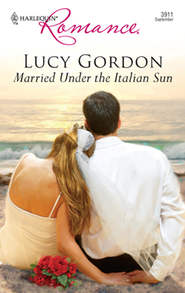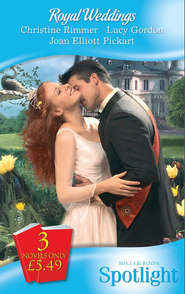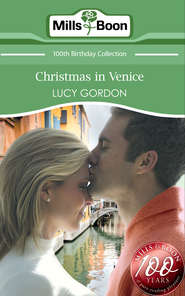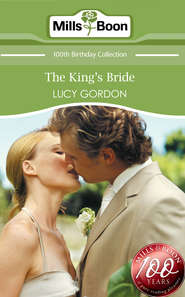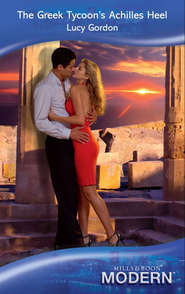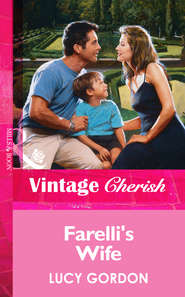По всем вопросам обращайтесь на: info@litportal.ru
(©) 2003-2024.
✖
The Rinuccis: Carlo, Ruggiero & Francesco: The Italian's Wife by Sunset
Автор
Год написания книги
2019
Настройки чтения
Размер шрифта
Высота строк
Поля
Before she could react to the name the young man with his back to her turned, smiling. It was the face she’d come to see, handsome, merry, relaxed.
‘I haven’t noticed—’ he began to say, but broke off to cry, ‘There!’
The boy had appeared through an arch and started running across the street. Carlo Rinucci darted after him, dodging back and forth through archways. The boy’s scowl vanished, replaced by a smile. Carlo grinned back, and it soon became a game.
Then the other children appeared, a dozen of them, hurling themselves into the game with delight.
‘Oh, dear!’ sighed the teacher.
‘Leave them to it,’ Della advised. ‘I’m Della Hadley, by the way.’
‘Hilda Preston. I’m supposed to be in charge of that lot. What am I going to do now?’
‘I don’t think you need to do anything,’ Della said, amused. ‘He’s doing it all.’
It was true. The youngsters had crowded around the young man, and by some mysterious magic he had calmed them down, and was now leading them back to the teacher.
Like the Pied Piper, Della thought, considering him with her head on one side.
‘OK, that’s enough,’ he said, approaching. ‘Cool it, kids.’
‘Whatever do you think you’re doing?’ Hilda demanded of the youngsters. ‘You know I told you to stay close to me.’
‘But it’s boring,’ complained the boy who’d made a run for it.
‘I don’t care if it is,’ she snapped, goaded into honesty. ‘I’ve brought you here to get some culture, and that’s what you’re going to get.’
Della heard a soft choke nearby, and turned to see Carlo fighting back laughter. Since she was doing the same herself, a moment of perfect understanding flashed between them. They both put their hands over their mouths at the same moment.
Predictably, the word culture had caused the pupils to emit groans of dismay. Some howled to heaven, others clutched their stomachs. One joker even rolled on the ground.
‘Now she’s done it,’ Carlo muttered to Della. ‘The forbidden word—one that should never be spoken, save in a terrified whisper. And she said it out loud.’
‘What word is that?’
He looked wildly around, to be sure nobody was listening, before saying in a ghostly voice, ‘Culture.’
‘Oh, yes, I see.’ She nodded knowingly.
‘You’d think a modern schoolteacher would know better. Does she do that often?’
‘I don’t know—I’m not—’ she began, realising that he thought she was one of the school party.
‘Never mind,’ he said. ‘It’s time for a rescue operation.’ Raising his voice, he said, ‘You can all calm down, because this place has nothing to do with culture. This place is about people dying.’ For good measure he added, ‘Horribly!’
Hilda was aghast. ‘He mustn’t say things like that. They’re just children.’
‘Children love gore and horror,’ Della pointed out.
‘It’s about nightmares,’ Carlo went on, ‘and the greatest catastrophe the world has ever known. Thousands of people, living their ordinary lives, when there was an ominous rumble in the distance and Vesuvius erupted, engulfing the town. People died in the middle of fights, of meals—thousands of them, frozen in one place for nearly two thousand years.’
He had them now. Everyone was listening.
‘Is it true they’ve got the dead bodies in the museum?’ someone asked, with relish.
‘Not the actual bodies,’ Carlo said, in the tone of a man making a reluctant admission, and there was a groan of disappointment.
Bloodthirsty little tykes, Della thought, amused. But he’s right about them.
‘They were trapped and died in the lava,’ Carlo continued, ‘and when they were excavated, centuries later, the bodies had perished, leaving holes in the lava of the exact shapes. So the bodies could be reconstructed in plaster.’
‘And can we see them?’
‘Yes, you can see them.’
A sigh of blissful content showed that his audience was with him. He began to expand on the subject, making it vibrantly alive. He spoke fluently, in barely accented English, with an actor’s sense of the dramatic. Suddenly the streets were populated with heroes and villains, beautiful heroines, going about their daily business, then running hopelessly for their lives.
Della seized the chance to study him in action. It went against the grain to give him top marks, but she had to admit that he ticked every box. The looks she’d admired on the screen were enhanced by the fact that his hair needed a trim, and hung in shaggy curls about his face.
He looked like Jack the Lad—a brawny roustabout without a thought in his head beyond the next beer, the next girl, or the next night spent living it up. What he didn’t look like was an academic with a swathe of degrees, one of them in philosophy.
‘History isn’t about culture,’ he finally reassured them. ‘It’s about people living and dying, loving and hating—just like us. Now, go with your teachers and behave yourself, or I’ll drown you in lava.’
A cheer showed that this threat was much appreciated.
‘Thank you,’ Hilda said. ‘You really do have a gift with children.’
He grinned, his teeth gleaming against the light tan of his face.
‘I’m just a born show-off,’ he laughed.
That was true, Della mused. In fact, he was exactly what she needed.
Hilda thanked her and turned to shepherd the children away. Carlo looked at her in surprise.
‘Aren’t you with them?’ he asked.
‘No, I just happened along,’ she said.
‘And found yourself in the middle of it, huh?’
They both laughed.
‘That poor woman,’ Della said. ‘Whoever sent her here on a culture trip should have known better.’
He put out his hand.
‘My name is Carlo Rinucci.’






